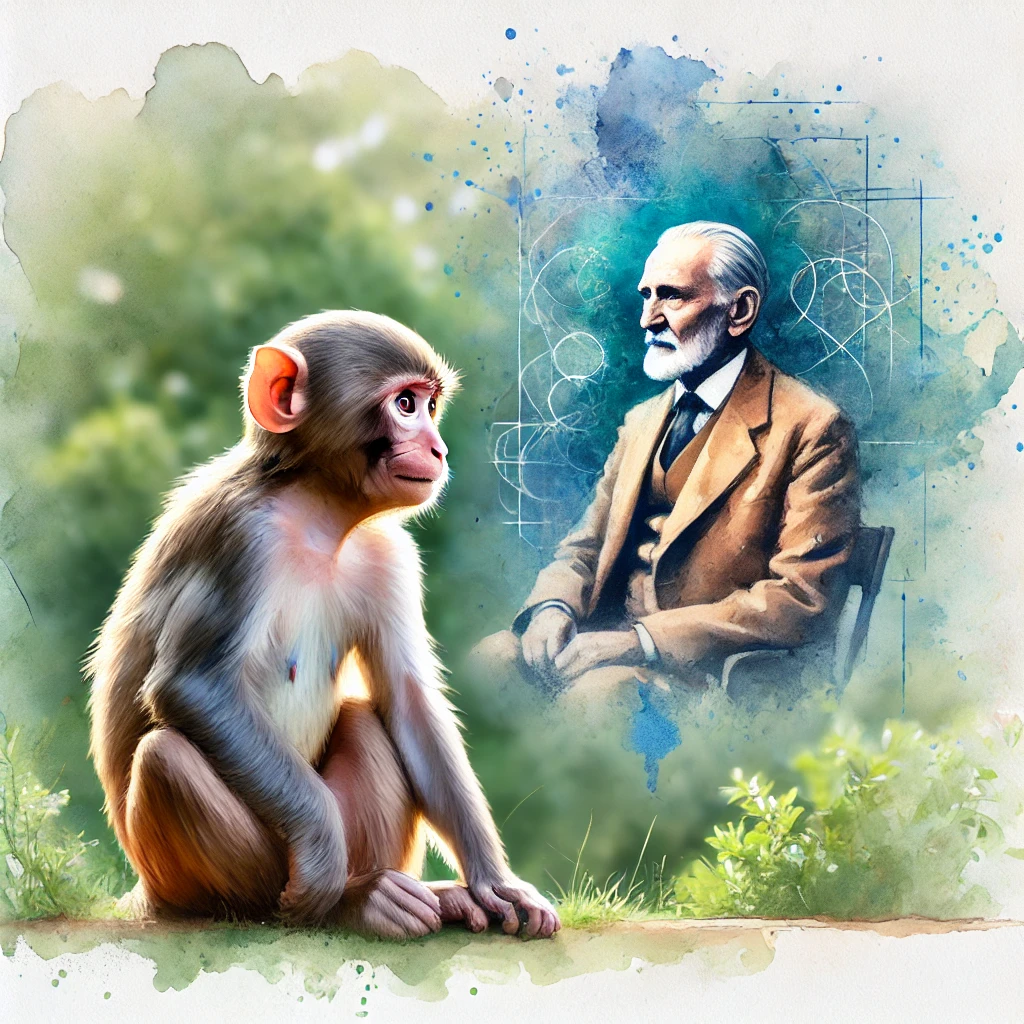Donald Winnicott, a pioneering British paediatrician and psychoanalyst, is best known for his groundbreaking theories on child development and the mother-infant relationship. His concepts of the “good-enough mother,” the “holding environment,” and the “true self” have profoundly influenced psychoanalytic thought. What is less commonly explored, however, is how research involving experiments on monkeys—particularly the work of Harry Harlow—played a pivotal role in validating and expanding Winnicott’s ideas.
Winnicott’s Core Theories
Before diving into the connection between Winnicott’s theories and monkey experiments, it’s essential to understand his foundational ideas:
- The Good-Enough Mother: Winnicott proposed that a “good-enough” caregiver attunes to a baby’s needs, providing consistent and responsive care while gradually allowing the child to experience frustration. This fosters resilience and independence.
- The Holding Environment: He introduced the idea of the holding environment as a metaphorical and literal space where an infant feels safe enough to explore their world. This environment depends on the caregiver’s emotional availability and reliability.
- The True and False Self: Winnicott argued that a secure early environment allows the “true self” to emerge—a state of authenticity and creativity. Conversely, if the caregiving environment is inconsistent or neglectful, a “false self” develops to adapt and survive.
The Role of Harlow’s Monkey Experiments
While Winnicott was developing his theories in the mid–20th century, American psychologist Harry Harlow conducted a series of now-infamous experiments on rhesus monkeys. These studies, though controversial, revealed fundamental truths about attachment and emotional development that resonated with Winnicott’s ideas.
Harlow’s Key Findings
- Importance of Comfort: Harlow’s experiments showed that infant monkeys preferred a soft, cloth surrogate mother over a wire surrogate that provided food. This demonstrated that emotional comfort and physical closeness are as critical as basic survival needs.
- Impact of Isolation: Monkeys raised in isolation exhibited severe emotional and social dysfunction, including difficulty forming relationships and exploring their environment.
- Development of Attachment: The experiments highlighted the biological and emotional necessity of attachment for healthy development, aligning with Winnicott’s emphasis on the holding environment.
How Harlow’s Findings Supported Winnicott’s Theories
Validating the Importance of Emotional Comfort
Winnicott’s assertion that the mother (or primary caregiver) provides more than physical care found direct support in Harlow’s experiments. Harlow demonstrated that emotional closeness and comfort are indispensable for healthy attachment, mirroring Winnicott’s belief in the importance of the caregiver’s emotional attunement.
The Consequences of Deprivation
Harlow’s findings on the devastating effects of neglect and isolation closely align with Winnicott’s warnings about inadequate caregiving. Winnicott theorised that children deprived of a “good-enough” holding environment might develop a “false self,” which Harlow’s isolated monkeys exemplified through their inability to form authentic social bonds.
Exploring the Environment
Winnicott highlighted the role of a secure holding environment in fostering a child’s ability to explore and engage with the world. Harlow’s work demonstrated that monkeys with a comforting surrogate mother exhibited more confidence and curiosity, providing empirical backing to Winnicott’s claims.
Ethical Considerations
While Harlow’s experiments are significant in understanding attachment, it is crucial to acknowledge their ethical implications. The suffering inflicted on the monkeys has prompted debates about the morality of using animals in psychological research. Winnicott, whose work was rooted in human clinical observation, relied on such findings without direct involvement in these experiments.
Lasting Impacts on Psychoanalysis and Beyond
The interplay between Winnicott’s theories and Harlow’s experiments continues to influence psychotherapy, child development, and parenting practices. Together, they underscore the significance of early emotional bonds in shaping a person’s mental health and capacity for relationships.
For practitioners, this synthesis of theory and research serves as a reminder of the profound impact caregivers have on fostering a sense of security, resilience, and authenticity in those they nurture.
